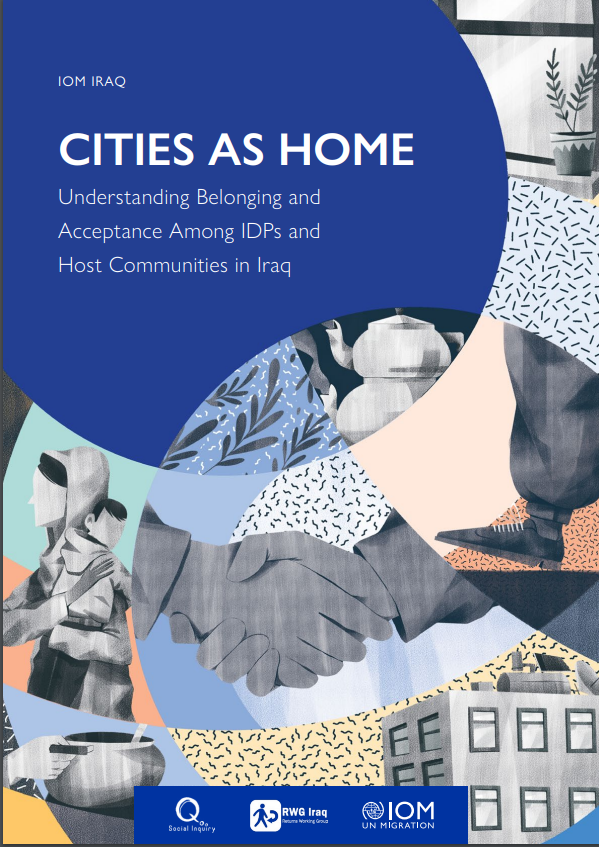CITIES AS HOME: Understanding Belonging and Acceptance Among IDPs and Host Communities in Iraq
In order to contribute to the measurement of local integration of internally displaced persons (IDPs) in Iraq, IOM Iraq, the Returns Working Group, and Social Inquiry implemented an in-depth study of 14 urban locations in the country hosting a high density of families displaced due to the ISIL conflict.
Utilising data collected on IDPs' perceptions and living conditions in displacement (1,382 respondents) and on those of host community residents (1,437 respondents) in the same neighbourhoods as well as key informant interviews with local authorities and policy-implementers (40 interviews) in these areas, this work seeks to identify which factors help or hinder local integration – and those locations that are more (or less) conducive to this outcome.
This study is predicated on the understanding that local integration is not only based how on IDPs perceive their own belonging in the hosting location, irrespective of any stated intentions to stay or return, but also how host communities feel about accepting them. Further to this, these feelings may themselves be influenced by the character of the urban areas where IDPs and host communities reside as well as the regulatory environment surrounding them.
